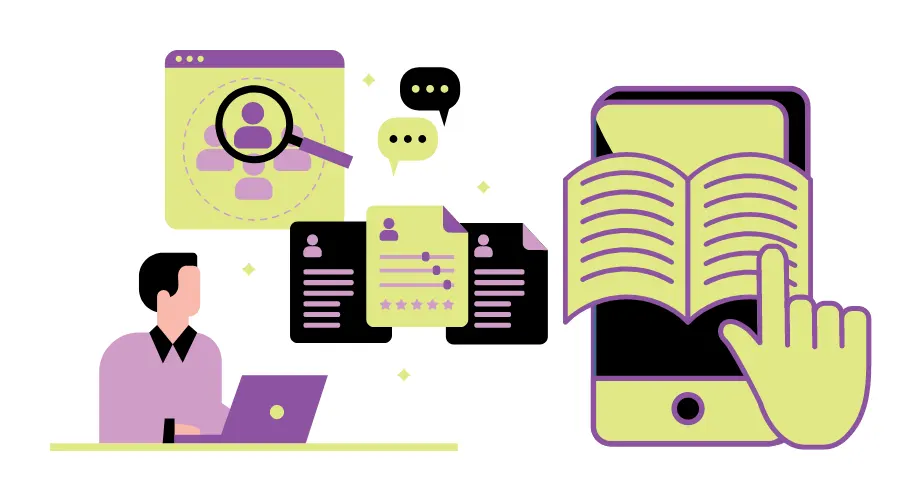Several years ago when I was doing my Masters, I met a student who talked about his poverty. I then got a sense of how poor American students struggle to afford higher education. Since then, I have advised several students on this subject.
Here I will try to give you those suggestions. I am not using any statistics in my writing because my purpose is to give you some practical advice, which you will need. So let’s start with how a poor student can go to university and complete it.
How can a poor student go to university and complete it?
A poor student can still attend and complete university through a combination of financial aid, scholarships, part-time work, and careful budgeting. Here’s a more detailed plan:
Stay Motivated
I started with this simple point because I noticed that financially disadvantaged people are often mentally weak. As a result, they lose hope. I assure you that poverty is not your hindrance because if you achieve good academic results, higher education won’t be out of reach for you if you earn a scholarship. Anyway, we have some more tips here. Keep reading; hopefully, it will help.
Perform well in high school exit exams
Many students struggle in this area. You have to remember that good academic performance will help you in getting higher education. With this, it will be easy to get various educational help, especially when you don’t have enough money. So do well in the high school exit exam.
Apply for Financial Aid
You can fill out the FAFSA(Free Application for Federal Student Aid) or the equivalent in your country. This application assesses your qualification for federal grants, loans, and work-study opportunities. Even if you think you may not qualify, it’s still worth applying, as many factors are taken into account beyond just income.
Research Scholarships
Spend time researching and applying for scholarships. There are many scholarships available based on academic merit, extracurricular activities, ethnicity, field of study, and financial need. Websites like Fastweb, Scholarships.com, and College Board can help you find relevant opportunities.
Consider Community College
Starting your education at a community college can be more affordable than attending a four-year university immediately. Community colleges often offer lower tuition rates and credits earned can usually be transferred to a four-year institution later on. This could substantially decrease the total expenses associated with your education.
Work Part-Time
Look for part-time jobs or internships that allow you to earn money while studying. Many universities offer work-study programs that provide employment opportunities for students with financial need. Additionally, consider summer jobs or internships to save up for tuition and living expenses.
Explore Low-Cost Housing Options
Look for affordable options such as on-campus housing, shared apartments with roommates, or renting a private home. Living frugally and sharing expenses with others can help reduce the financial burden.
Utilize Online Resources

You can take advantage of free online resources and textbooks whenever possible. Many courses offer open educational resources (OER) that can be accessed online at no cost. Additionally, consider using libraries and online databases for research and study materials.
Budget Wisely
Create a budget to track your expenses and prioritize spending on essentials such as tuition, books, and housing. Cut back on non-essential expenses and look for ways to save money, such as cooking at home instead of eating out or using public transportation instead of owning a car.
Seek Support Services
Many universities offer support services for students from low-income backgrounds, including academic advising, tutoring, and financial counseling. Take advantage of these resources to help navigate the challenges of attending university with limited financial resources.
Stay Persistent and Motivated
Remember that pursuing a university education is an investment in your future. Stay focused on your goals, seek support when needed, and remain persistent in your efforts to overcome financial obstacles and complete your degree.
Conclusions
Finally, if you can use the above strategies well for yourself, then I believe that you will not have to leave university due to poverty. So, read the above points carefully again if necessary, because the rewards of earning a degree can lead to greater opportunities and financial stability in the long run.
How can a poor student go to university and complete it anyway? OK, now I hope you have a clear idea about this question. The main thing is your willpower that will drive you forward. If you need help, you can send us an email.”
There you go! If you have any more text you’d like checked or need further assistance, feel free to ask!
Frequently Asked Questions (FAQ)
If you can’t afford college, there are steps you can take, such as getting a student grant and expanding your range of part-time jobs. There are also low-cost options such as attending a community college.
The full meaning of FAFSA is Free Application for Federal Student Aid. It’s simply an application for federal student aid. You’ll need to fill out this FAFSA form when you apply for federal grants, work-study funds, and loans.
Suggested read:

